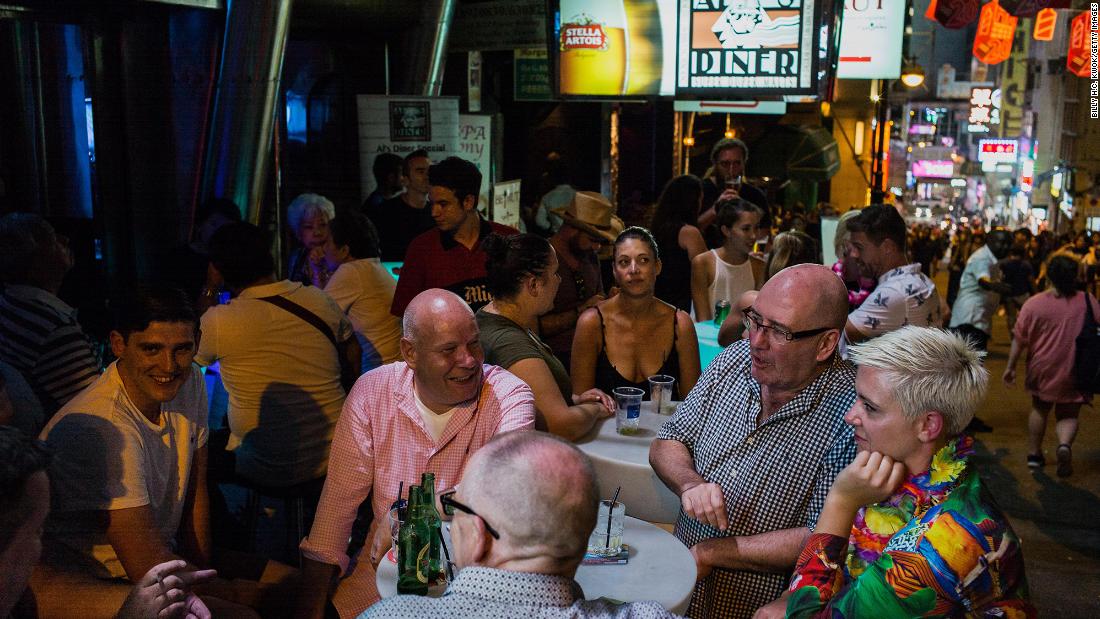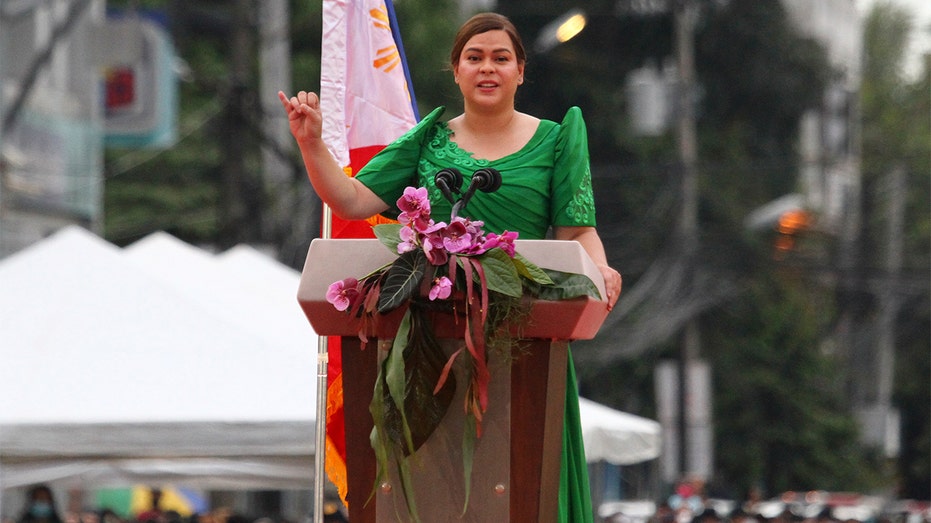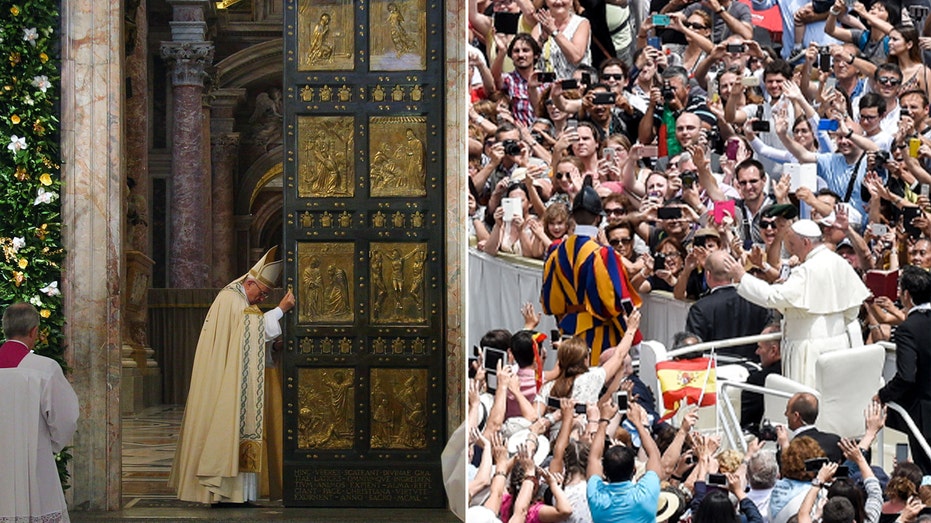- by foxnews
- 24 Nov 2024
This city never slept. But with China tightening its grip, is the party over?

Editor's Note: Sign up for CNN's Meanwhile in China newsletter which explores what you need to know about the country's rise and how it impacts the world.
As the scattered patrons hop from one deserted bar to the next, it's hard to believe the near-empty streets they are zigzagging down were once among the most vibrant in Asia.
It is Thursday evening, a normally busy night, but there are no crowds for them to weave through, no revelers spilling onto the pavements and no need for them to wait to be seated. At some of the stops on this muted bar crawl, they are the only ones in the room.
It wasn't always this way. It might seem unlikely from this recent snapshot, but Hong Kong was once a leading light in Asia's nightlife scene, a famously freewheeling neon-lit city that never slept, where East met West and crowds would spill from the bars throughout the night and long into the morning - even on a weekday.
Such images were beamed around the world in 1997, when Britain handed over sovereignty of its prized former colony to China, and locals and visitors alike welcomed in the new era with a 12-hour rave featuring Boy George, Grace Jones, Pete Tong and Paul Oakenfold.
China's message at the time was that even if change was coming to Hong Kong, its spirit of "anything goes" would be staying put. The city was promised a high degree of autonomy for the next 50 years and assured that its Western ways could continue. Or, as China's then leader Deng Xiaoping put it: "Horses will still run, stocks will still sizzle and dancers will still dance."
And for long after the British departed, the dancing did indeed continue. Hong Kong retained not only the spirit of capitalism, but many other freedoms unknown in the rest of China - not just the gambling on horse races that Deng alluded to, but political freedoms of the press, speech and the right to protest. Even calls for greater democracy were tolerated - at least, for a time.
But little more than halfway into those 50 years, Deng's promise now rings hollow to many. Spasms of mass protests - against "patriotic education" legislation in 2012, the Occupy Central movement in 2014 and pro-democracy demonstrations in 2019 - led China to restrict civil liberties with a sweeping National Security Law. Hundreds of pro-democracy figures have since been jailed and tens of thousands of residents have headed for the exits.
That crackdown and Hong Kong's fading freedoms have been well-documented, but it is only more recently that a less-reported knock-on effect of China's crackdown has started to emerge: In the streets and the bars, the trendy clubs and Michelin-starred restaurants, the city that never slept has begun to doze.
Nightlife in the city has become a pale shadow of its heyday as a regional rest and relaxation magnet, when its reputation rested on it being easier to navigate than Japan, less boring than Singapore and freer than mainland China.
Now, apparently in tandem with the diminishing political freedoms, business in the city's once-thriving bars is drying up. And while some argue over whether politics or Covid is at fault, few dispute that something needs to be done.
Bars earned about $88.9 million in the first half of 2023, 18% less than the $108.5 million brought in during the same period in 2019, according to official data.
In an effort to arrest the decline, the Hong Kong government has launched a "Night Vibes" campaign featuring bazaars at three waterfront areas, splurged millions on a recent fireworks show to celebrate China's National Day and reintroduced a dragon dance, lit by incense sticks, in its neighborhood of Tai Hang.
Those efforts have attracted a mixture of criticism and mockery - with many pointing out the irony of the campaign's opening ceremony featuring two white lions, a color associated in Chinese culture with funerals. Meanwhile, the bazaars have been interrupted by a mix of typhoons and security concerns over the use of fireworks.
Still, Hong Kong's Chief Executive John Lee insists the events are a success, saying at least 100,000 people have checked out the bazaars and that 460,000 tourists from mainland China visited for National Day. And the white lions? Officials say they were "fluorescent."
A Hong Kong government spokesman told CNN this week that the activities were "well-received by local residents and tourists". A recent Hong Kong Wine & Dine Festival brought in 140,000 patrons and shopping malls supporting the Night Vibes campaign said they had seen "growth in visitor flow and turnover," he added.
There are some who point the finger solely at Covid.
"It's obvious that it's worse than before. This is the side effect of Covid, which has changed the way of life," said Gary Ng, an economist with French investment bank Natixis.
And few would dispute that Covid took its toll. During the pandemic, Hong Kong made a virtue of cleaving closely to a mainland Chinese-style zero-tolerance approach that, though not quite as draconian, was still extreme enough to send large numbers of expatriates heading for the exit, with many of them decamping to rival Asian cities like Singapore, Thailand and Japan.
Hong Kong, where incoming travelers faced weeks in quarantine and restaurant tables were limited to two customers, was suddenly the boring one and Singapore - in a telling comparison - the more lively.
Under Hong Kong's pandemic restrictions, live music was all but banned in small venues for more than 650 days.
But others say Hong Kong is in denial and that its nightlife problems go much deeper than the pandemic. Other places have recovered, they say, why not Hong Kong?
These observers note the city's response to Covid should itself be seen through the lens of the city's ever disappearing freedoms.
Months before the virus emerged, China had been tightening its grip on Hong Kong in response to pro-democracy protests that had spread throughout the city.
It introduced restrictions on freedoms - such as of expression and of the press - which were supposedly guaranteed at the time of the handover.
Songs and slogans perceived as linked to the protests were outlawed, memories of past protests scrubbed from the internet, sensitive films censored and newspaper editors charged with sedition and colluding with foreign forces.
The government has maintained that legal enforcement is necessary for Hong Kong to restore stability and prosperity and stop what China says is "foreign forces" from meddling in the city.
"We strongly disapproved of and firmly rejected those groundless attacks, slanders and smears against the HKSAR on the protection of such fundamental rights and freedoms in Hong Kong," a spokesman said, referring to Hong Kong's official name, in a reply to CNN.
But, the critics hit back, none of that lends itself to an atmosphere where people will want to sit back, relax and shoot the breeze.
"People may feel like they have to self-censor when having a chat at restaurants or bars because, who knows who may be listening. They may as well stay home for the same chat where they feel safe," said Benson Wong, one of the hundreds of thousands who have left Hong Kong.
Wong, a former associate professor who specialized in local politics, said he used to enjoy eating out at dai pai dongs - open-air stalls selling Cantonese classics and (usually) plenty of beer - where patrons once talked freely about everything from celebrity gossip to politics.
Now though, he said, "one won't feel happy if they have to watch everything they say."
Whether it was Covid or the crackdown, or some combination of the two, an exodus of middle-class Hong Kongers and affluent expats has taken place in recent years.
Last year, the city saw a net outflow of 60,000 residents, its third drop in as many years, taking the number of usual residents down to 7.19 million as of the end of 2022 - a drop of almost 144,000 from the end of 2020.
Tens of thousands of them are Hong Kongers who have taken up special visas and pathways to citizenship offered by Western countries such as Britain, Canada and Australia in the wake of China's crackdown.
But there has also been a steady drip of departures from the expat population that, like a post-colonial hangover, had remained in the city long after Britain's departure. They were largely professionals in finance and law with a reputation for working hard and partying even harder, regardless of the politics.
Local media is now awash with reports of banking and law firms relocating their offices, in part or full, to rival financial hubs such as the no-longer-boring Singapore.
Unfortunately for bar and restaurant owners, the two demographics leaving are among their biggest customers.
"The expats have relocated, as well as [Hong Kongers] with a higher income. Their departure of course will have an impact," said Ng, from Natixis.
Increasingly, these two groups are being replaced by people from mainland China, who now account for more than 70% of the 103,000 work or graduate visas granted since 2022, according to the Immigration Department. The newly dominant migrants, economists point out, tend to have very different spending habits.
Yan Wai-hin, an economics lecturer at the Chinese University of Hong Kong, said the city's previously robust nightlife was propped up largely by a base of expats and middle-class locals steeped in the time-honored drinking culture of enjoying a nice cold one after a long day.
"The makeup of the population is different now," Yan said. "Now we have more immigrants from the mainland, and they tend to love to go back to mainland China to spend instead."
At Hong Kong's most famous nightlife district, Lan Kwai Fong, the music may be fading, but it hasn't stopped completely.
The area was long synonymous with jam-packed streets of revelers who would spill out from the bars as the air filled with the sounds of boisterous chatter, clinking glasses and dance music blasting away late into the night.
But during a recent visit by CNN, there was little to distinguish the area from any other street.
"It has been very challenging so far and it has not got back to normal by a long shot," said Richard Feldman, who runs the gay bar Petticoat Lane at the California Tower in Lan Kwai Fong.
The chairman of the Soho Association, who has been running businesses in the city for more than three decades, Feldman said business was slightly better between Friday and Saturday than weekdays and shops with a good reputation have been less affected.
But across the board, he too said the number of Western faces were dwindling in what was once a favored expat haunt.
"It was a mix of expats and local professionals who would go out for drinks and a late night dance. But that demographic has eased quite a bit in the past year," said another bar owner Becky Lam. "We are getting more mainland customers."
Lam, joint founder of a number of Hong Kong bars and restaurants, including wine bar Shady Acres in Central, said while mainland Chinese were willing to spend, they tended to gravitate towards restaurants rather than bars and were less likely to stay out late.
On a weekday, she said, the bars she runs have been getting only half of the customers compared to pre-pandemic days.
"They'll settle for the Happy Hours and that's it. We are not talking about 2 a.m. to 3 a.m.," she said.
There are other problems gnawing away at the nightlife sector.
"People's habits have changed since Covid, as many are so used to staying at home watching TV and Netflix," Feldman said.
During the pandemic, Hong Kong imposed a lengthy ban on bars and dine-in services to stem social gatherings, in what many saw as a nod to mainland China's "zero-Covid" strategy.
This affected shops and malls, which shortened their business hours due to the lack of customers. In many cases, those shortened hours have now become the new normal, with some shops now closing as early as 9 p.m. as opposed to the pre-Covid standard of 10:30 p.m.
Also conspiring against the city's nightlife is a strong Hong Kong dollar compared to the Chinese yuan, which affects how both Hong Kongers and potential tourists spend their money.
"People from the mainland are less likely to come here to shop, while people in Hong Kong are going to Shenzhen to spend their money," said Marco Chan, head of research at real estate and investment firm CBRE.
While mainland tourists now think twice about coming to Hong Kong, many Hongkongers have been spending their weekends in mainland China, where many services come at a fraction of the price, Chan said.
Known as the "Godfather of Lan Kwai Fong," Allan Zeman - the entrepreneur who turned the small square in Hong Kong's Central district into a renowned nightlife hub - cuts a more optimistic figure than most and insists business is not as bad as it appears.
He estimates mainland Chinese customers now account for 35% of the patrons in Lan Kwai Fong and says they are big spenders.
"They'll go up to a club, like the California Tower on the roof, and they'll spend like 400,000 to 550,000 Hong Kong dollars ($51,000 to $70,000) just for drinks," he said.
His take is that it is Hong Kong's strong currency and a relative lack of incoming flights compared to the pre-Covid era that are stalling the city's comeback. "I think it's temporary," he said.
But bar owner Lam said Hong Kong needs to reexamine its regulatory approach, if it is to thrive at night once more.
Lam pointed to a drive in recent years by the authorities to remove the city's famous neon lights in the name of safety as an example of the current misguided approach, saying Hong Kong's most defining nighttime icons were being dismantled one sign at a time.
She also said her bar, Shady Acres, had been told to serve customers only indoors and shut all doors and windows after 9 p.m. as part of its licensing requirement.
"These kinds of hurdles are really big in Hong Kong," Lam said. "But I look at our neighboring cities like Bangkok, Shanghai and Taipei. These cities have an exciting nightlife as they really make it late night fun with music, street art and late night dining."
Feldman, of Petticoat Lane, had another suggestion. "Hong Kong used to be a far more international destination. Now it is a domestic destination," he said.
The city, said Feldman, should "do everything it can to attract people not only from China but from all over the world."
- by foxnews
- descember 09, 2016
Italy expected to draw travelers by the millions as Pope Francis kicks off Holy Year
The 2025 Jubilee will bring tourists to the Vatican, Rome and Italy to celebrate the Catholic tradition of patrons asking for forgiveness of sins. Hope will be a central theme.
read more


